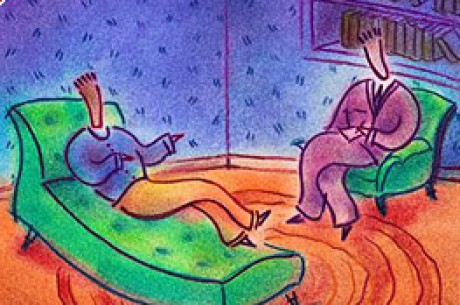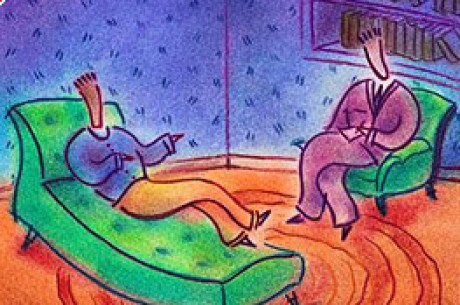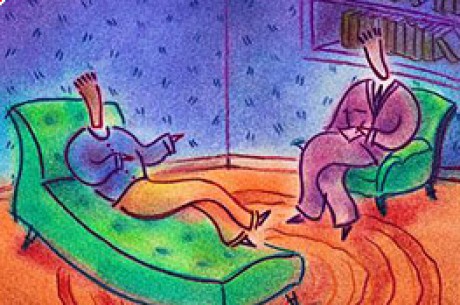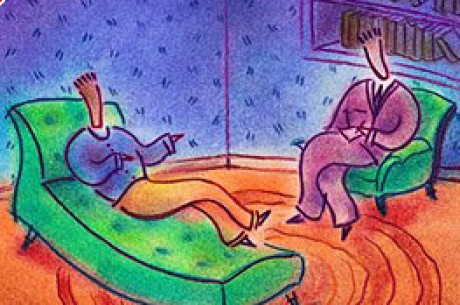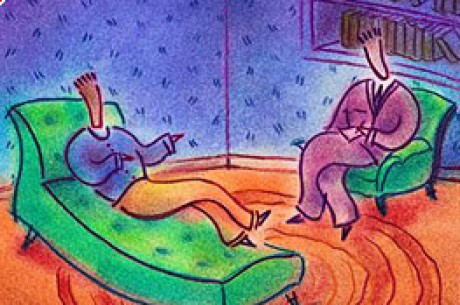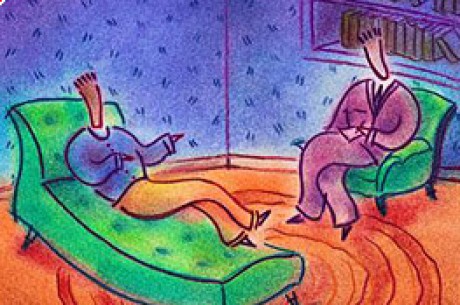The Poker Counselor's Corner (65)
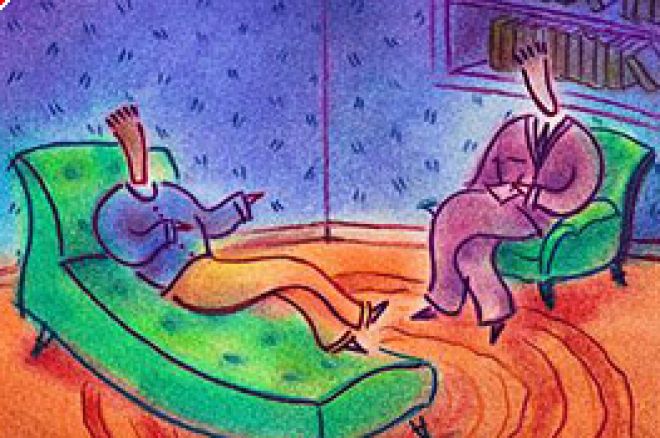
Dear Poker Counselor: How do I know when my session is over? How do you know when to get up and leave? There have been times when I was tired and hungry but pushed on to win huge pots. Other times I hung in there and lost most of my stack. I do know it is hard for me to keep my concentration after I spend most of the night in one seat. What is the tell tale sign that I need to cash out? - Posted at an online forum by TeeMan
A few months ago I had the supreme fortune of getting a crash course in counting cards in blackjack with poker pro (and ex-MIT blackjack team member) Andy Bloch and Phil Gordon. The three of us teamed up to take the casino down for several thousand dollars in a short amount of time. I played the same bet every time, Andy counted the cards, and he signaled in big bettor Phil Gordon when the deck was favorable. When the deck was no longer ripe for winning, the three of us made our exit. This concept is true at the poker table as well as the blackjack table. When the table conditions are right for you to win at poker, you play. When they are not, you make a quick dash for the cash-out. In blackjack, this is determined by the count of the cards. In poker, this is determined by your abilities and mental status compared to that of your tablemates.
Never mindlessly follow the advice to not play when you are tired, hungry, angry, etc. Choosing a stopping point is never that simple. For instance, I once settled into a competitive Limit Hold 'Em game while on vacation in Aruba. The table was short-handed and comprised of very knowledgeable and skillful locals, so after many hours of play I had not grinded out any profits at all. I had grown very tired, hungry, and my instincts had faded, so I was just about ready to cash out and head to the bed with about the same amount I had started with. I quickly changed my mind, though, when a group of drunken podiatrists loudly crashed into the poker room. They were on the island for some sort of convention, and they were ready to gamble. Although I was certainly not at my sharpest or best, I was not leaving that seat until the last foot-doctor had lost his last chip! Despite the fact that I was so tired and mentally worn that I was nowhere near my best, I was still favored over drunken, rich amateurs. The table conditions were favorable. Thus, the best measure to weigh your current status against those you are against. If your table still is filled with easy prey, perhaps you should stay until the prey have been vanquished. On the other hand, if the competition is tough and you are getting tired, you will become the prey!! So, basically, take the lesson that Andy Bloch teaches about blackjack to heart when playing poker. Simply play when you have the advantage to win. When you do not have the edge, get out of there!
Dear Poker Counselor: I play mostly online. I was at a live local casino (No Limit tournament) and picked up pocket Kings. The guy beside me to raised to 150 (it was 50 Big Blind). I tossed in a 500 denomination chip into the middle assuming it was a re-raise. The dealer said it was only a call because I had not declared the raise. I am not used to this being an internet player. The original raiser ended up catching a good flop and took me down. – Posted at an online forum by MikeyMike
It is very important to know the rules and nuances of the live game before you venture too deeply into it. I find that way too many online players assume that they will be able to easily navigate live games based on their experiences behind the laptop or mouse. In reality, live games are a much different animal than online games. The dealer was very much accurate in interpreting your action as a call. You must announce your intentions verbally. Simply stating, "I raise," before tossing in the 500 would have sufficed. Announcing the amount of the raise is advisable, as well. I find that many online players are intimidated or apprehensive about verbalizing at the tables. Their minds have grown accustomed to the faceless, wordless version of poker. With that, many who've learned poker only on the net tend to be quiet at the tables. They not only neglect to announce their intentions as they should, they often become spectators at the table. They do not interact with the tablemates. This can be a distinct disadvantage. I always like to be sure that I meet and interact with those I am playing against. I use the information that I gather to make a judgment on their probable style of play, while getting a baseline for their normal demeanor. When a gregarious tourist suddenly clams up when he raises, I might have a solid read that he is touting a monster. I am able to extract more information on each opponent via casual chit-chat between hands than any tense stare-down will ever induce. Don't become distant from the table. Stay keenly involved in the psychology that surrounds the table. While the online game is devoid of physical tells, your instincts can kick in to read opponents when you are actively in tune with the personalities surrounding you. Remember that you are no longer under the cloak of the computer screen. While you will indeed need to concentrate on masking your own tells, it is important to hone your skills at the live game. First, be sure that you are comfortable with the live version of the game and that you know all of the rules (such as announcing intentions). Next, mix it up with the players that you encounter to get the best read possible on them. Use the information that you gather to extract the most possible chips from them on each deal of the cards. Welcome to a whole new level of poker!
KEEP THOSE QUESTIONS COMING!!! [email protected]
Ed note: Doyle plays at Doyle's Room Come join him.

